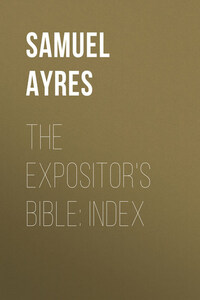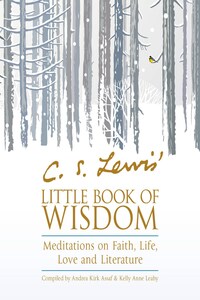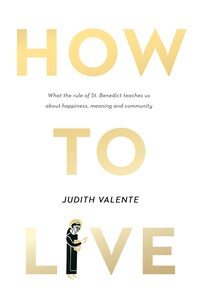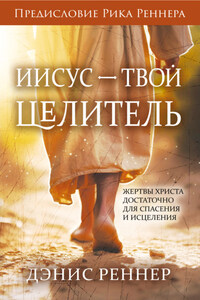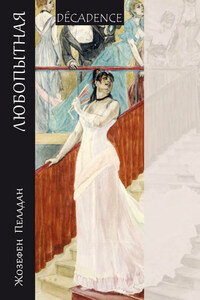GENERAL PREFACE TO THE EXPOSITOR'S BIBLE
By the Editor.,
W. ROBERTSON NICOLL, M.A., LL.D
The Expositor's Bible has been published in a period of exceptionally active work in Biblical criticism. A survey of recent study in the Old Testament and in the New by very competent scholars is supplied in this volume. I confine myself to general considerations. Whatever criticism has accomplished or has not accomplished, we may be sure that the supremacy and the finality of the Bible are as they were, and will continue secure and unassailable. The ultimate testimony that the Bible is the Word of God cannot be derived from external witness or from a process of reasoning. It is in the heart of the believer to whom the voice of God is personal, and it is given by the Holy Spirit that still bears witness in and with the Word. It is and has always been to the Church not a matter of probable evidence, but one of Divine certainty. If we could see the living Church! It would be much to see the Church Triumphant, and in a sense that privilege is ours. For we are come to Mount Zion where God has set His King, to the festal host and Church of the firstborn which are written in Heaven. Yet a hush hangs over the everlasting hills, and the light that falls on them now for us is but starlight to the glory that clothes them. But what if we could see the living in Christ, if the sheath of the Church Visible should suddenly fall away and the flower of the Church Invisible should unfold itself before our eyes. Those who have heard in His written Word the true voice of God are the Church Invisible, and it is to them and to them only that the conviction of its Divine riches is assured. But even for them – and in these days this is specially true – there are difficulties about the content, the meaning, and the form of Scripture. Upon these there are great differences, but there is ground on which we may all meet. There are arguments which appeal to every Christian heart for the finality of the Word of God.
We are in the first place, confronted by the fact of the permanent and inextinguishable life of the Bible. No engrossment of the general mind with secularities, no change in the methods of thought, no discovery of science, and no achievement of literature puts the Bible out of court. It and it alone ministers to the permanent and universal cravings of our being. Sir Thomas Browne puts it well: "Men's works have an age like themselves, and though they outlive their authors, yet have they a stint and period to their duration. This only is a work too hard for the teeth of time, and cannot perish but in the general flames when all things will confess their ashes." The words are as true as when they were written, and they will be as true at any future period, however long this frame of things may last. We will not even quarrel with the thought that the Bible itself will come to be no longer needed, for we shall in the end be content to have no Scripture but the Living Word Himself. Now it is this which sharply distinguishes the Bible from every other book. There are, said one, three classes of books. There is the book you read once, the book you read twice, and the book you read every year. There is besides the Book which you read constantly, which morning by morning, evening by evening, brings its message of help. Other books, even the greatest, exhaust their message. Take, for example, the sermons of Frederick Robertson. What startling freshness there was in them on a first reading! Go back to them now, and you find that very much of their message has passed into the substance of contemporary thought. The Bible has been and ever is yielding messages, and yet returning to it you ever find, and the generations ever find, that it has more to say. We may, indeed, read it heedlessly and find it old. But who that reads it with a wistful heart will ever have this experience? "I sometimes look back," said one, "to those simple days when my spiritual life was commencing, when I used to go forth to my labours with the New Testament in my pocket, that I might glance over its pages at the next leisure moment. I read it with fresh, unworn, unspeakable interest. It was like Adam's first walk in Paradise." It has been told of some saints whose minds had in their day roamed over the field of knowledge, that as life drew up to the end they read almost nothing except the Bible, feeling every time that they were only beginning to understand it.
The significance of this is not that the Bible is a great achievement of literature, not that it is the noblest and sublimest of all books, but that it is the final revelation of God. There is a dangerous form of apologetics which aims at establishing that the Bible is the most remarkable book in the world. That parts of the Bible are of the noblest literary beauty is certain. That some at least of the human authors were transcendently gifted is equally certain. For example, this is eminently true of the unknown author of the Book of Job, a book which, as Froude says, will be found at the last to tower above all the poetry of the world. It is so with the unknown author of the Epistle to the Hebrews, who has been truly if quaintly, described as "a man of the first intellectual mark." It is true of St. Paul, whose intellect was very receptive, that even when most receptive, most powerful, an instrument, an
